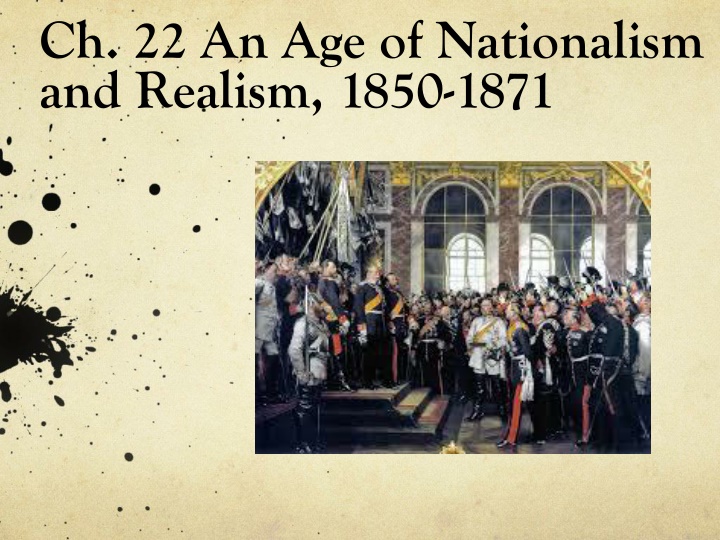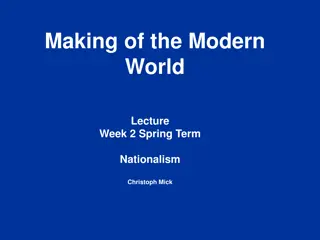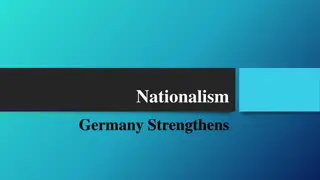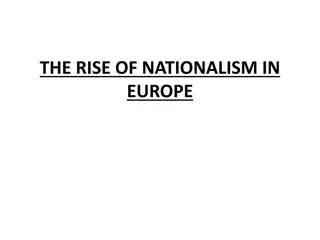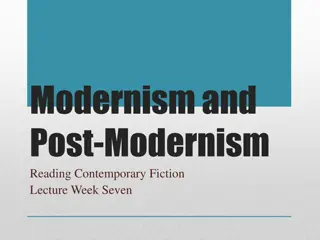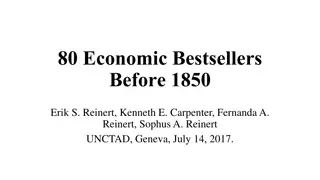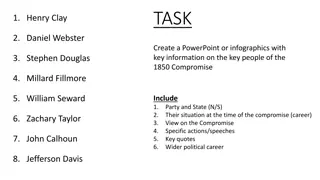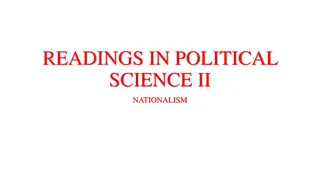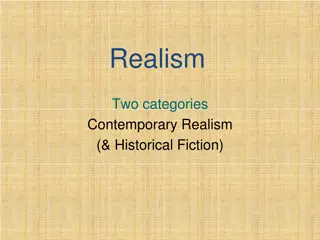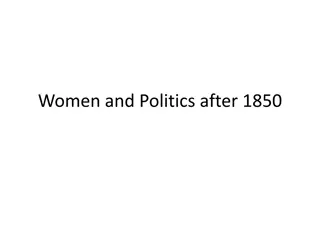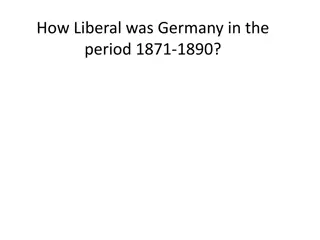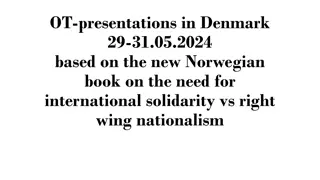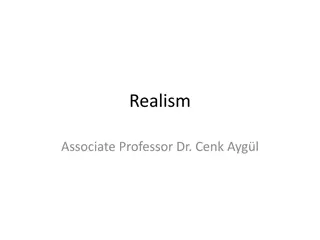Ch. 22 An Age of Nationalism and Realism, 1850-1871
Napoleon III's government in France combined authoritarian rule with a semi-representative assembly. His foreign policy initiatives, such as the Mexican adventure and participation in the Crimean War, played a role in the unification of Italy and Germany. The Second Napoleonic Empire saw domestic policies focusing on economic development, infrastructure, and some liberalizations in response to opposition. Explore how Louis Napoleon's presidency led to the restoration of the French Empire and his significant impact on European politics during the mid-19th century.
Download Presentation

Please find below an Image/Link to download the presentation.
The content on the website is provided AS IS for your information and personal use only. It may not be sold, licensed, or shared on other websites without obtaining consent from the author.If you encounter any issues during the download, it is possible that the publisher has removed the file from their server.
You are allowed to download the files provided on this website for personal or commercial use, subject to the condition that they are used lawfully. All files are the property of their respective owners.
The content on the website is provided AS IS for your information and personal use only. It may not be sold, licensed, or shared on other websites without obtaining consent from the author.
E N D
Presentation Transcript
Ch. 22 An Age of Nationalism and Realism, 1850-1871
The France of Napoleon III FQ: What were the characteristics of Napoleon III s government, and how did his foreign policy contribute to the unification of Italy and Germany?
Louis Napoleon: Toward the Second Empire 1848 Elected as the president of the French Republic. While Napoleon III was supported by the French people, his wish to revise the constitution and be allowed to stand for reelection was rejected by the National Assembly. Louis responded by using troops to seize control of the government on December 1, 1851. He was then overwhelmingly elected as president for the next ten years only to restore the empire a year later and assume the tile of Napoleon III.
The Second Napoleonic Empire Authoritarian rule with a legislative assembly that appeared to be a representative government but could neither start legislation nor affect the budget. Early Domestic Policies -Govt. resources to stimulate the national economy. -National infrastructure (railways, harbors, roads, and canals in addition to hospitals, free medicine and complete reconstruction of Paris).
Early Domestic Policies contd Liberalization of the Regime -Opposition to the emperor s policies in the 1860s led to certain reform including: legalizing trade unions and granting them the right to strike. -Legislative Corps gained more influence in making. policy
Foreign Policy: The Mexican Adventure Napoleon III sent French troops to Mexico in 1861 to protect their interests and dominate Mexican markets for French goods. While Spanish and British forces withdrew after order had been restored between liberal and conservative Mexican Factions, France stayed and installed Archduke Maximilian of Austria as emperor of Mexico. French army left Maximilian to be executed in 1867.
Foreign Policy: The Crimean War Napoleon III s ultimate goals = free France from the restrictions of the peace settlements of 1814-1815 and be the ultimate authority of Europe. The decline of the Ottoman empire presented Napoleon III with an opportunity to achieve those goals.
The Ottoman Empire Crimean War (1854-1856)= Who would benefit from the breaking apart of the Ottoman Empire? Russians became involved because of their proximity and religious ties to the Greek Orthodox Christians in Ottoman- dominated territory. Russia was also interested in controlling the valuable sea-trade route, the Dardanelles Straights. France and Britain also had financial interests in the eastern Mediterranean.
Causes of the Crimean War Russia s demand to have the right to protect Christian shrines in Palestine was refused by the Ottoman Empire, leading to the Russians occupying Moldavia and Wallachia. 1853 Ottoman Empire declared war on Russia. 1854 Great Britain and France declare war on Russia in order to protect the balance of power and control of the eastern Mediterranean.
Consequences of the Crimean War Russian fortress o Sevastopol fell to the French and British after two years of costly war on both sides. Alexander II signed the Treaty of Paris in 1856 and Russia was forced to give up Bessarabia and accept the neutrality of the Black Sea. Broke up longstanding European power relationships and effectively destroyed the Concert of Europe. Austria and Russia were now enemies. Russia withdrew for the next two decades. Great Britain also pulled back. New balance of power was about to take shape.
